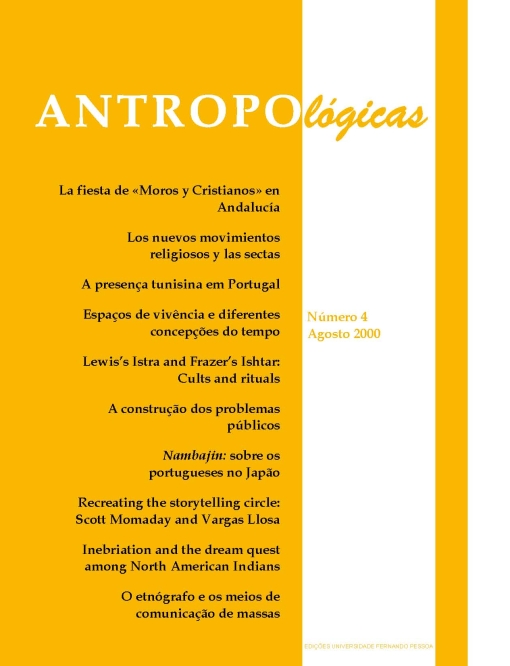"Drunkenness and dreams". Inebriation and the dream quest among North American indians
Abstract
This paper argues that, along with dreams, drunkenness is perceived by North American Indians as a means of communication with the world of spirit. Early Christian missionaries explained the natives’ passion for drink by their inflated self-esteem and urge for power, regarding alcohol and dreams as the main obstacles on the way to theIndians’ conversion to Christianity. On the other hand, indigenous explanations of drunkenness differ from those of white observers. Drawing on the examples ranging from the Ojibwa, Potawatomi, Ottawa and twentieth-century Montagnais-Naskapi, to the early seventeen-century Micmacs and contemporary Numa and Tarahumara, the author demonstrates that the Indians account for the connection between drunkenness and dreams by a temporary absence of the soul that travels in the world of spirit. That is why a drunken person can even be regarded as ‘sacred’. Alcohol itself does not cause hallucinations but the sound sleep it induces can be a way of experiencing ‘sacred visions’.Downloads
Issue
Section
Feature articles
License
Copyright Notice
Authors who publish in this journal comply to the following terms:
- Authors retain copyright and grant the magazine right of first publication, with the work simultaneously licensed under a Creative Commons Attribution license that allows the sharing of work and recognition of authorship and first publication in this journal.
- Authors are authorized to take additional contracts separately for non-exclusive distribution of the work published in this journal version (ex.: publish in an institutional repository or as a chapter of a book), with recognition of authorship and first publication in this journal.
- Authors are allowed and encouraged to publish and distribute their work online (e.g., in institutional repositories or on their personal page) at any point before or during the editorial process, as it can generate fruitful changes, as well as increase the impact and citation of the published work (see The effect of open access). [link to http: opcit.eprints.orgoacitation-biblio.html]


